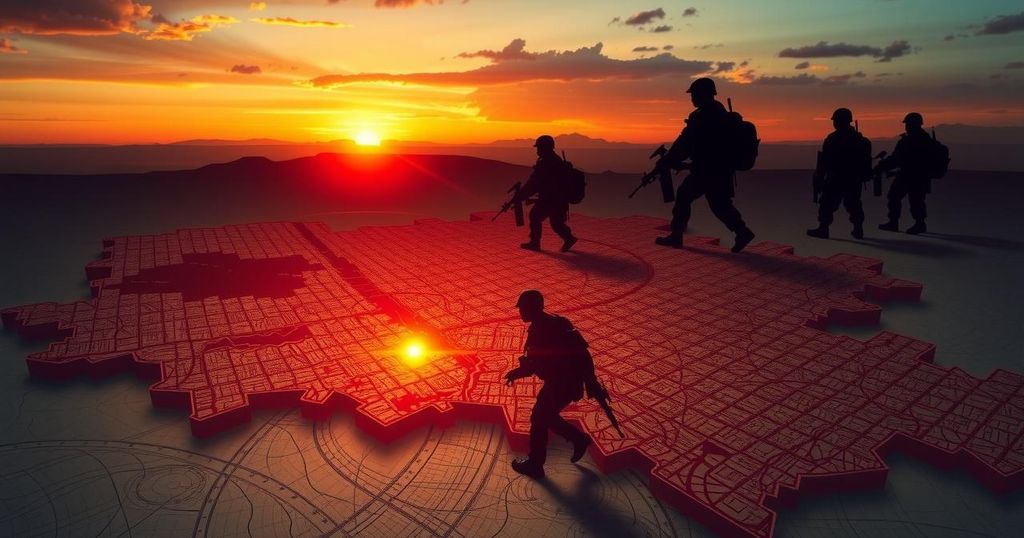Rwandan-backed M23 rebels have entered Goma, escalating an ongoing humanitarian crisis in eastern Congo. Witnesses report ongoing violence and looting, as the situation raises alarms among local residents and the international community. U.N. personnel began evacuation procedures, highlighting the crisis’s urgency amid the region’s years of conflict and instability.
On Monday, Rwandan-backed rebels advanced into the heart of Goma, eastern Congo’s largest city, amplifying an ongoing humanitarian crisis in the region. The M23 militia, which leads the rebel coalition, claimed to have seized full control of the city, although independent verification remains absent. Witnesses reported gunfire and clashes between M23 fighters and government-aligned militia near vital areas, including the airport.
Residents expressed confusion as they observed soldiers maintaining a presence, with some instances of looting occurring. The eastern Democratic Republic of Congo is a volatile area, plagued by the remnants of conflicts stemming from historic genocides and wars. The M23 has previously captured Goma in 2012, but had withdrawn shortly after due to diplomatic pressure.
Corneille Nangaa, a rebel leader, stated that government soldiers were surrendering; however, local authorities claimed control of the airport remained with the army. Reports indicated 100 Congolese soldiers had surrendered their weapons to Uruguay’s military under the U.N. peacekeeping mission. No immediate statements were made by the Congolese government in response.
On Monday, U.N. personnel began evacuating to Rwanda amidst escalating violence, as social media circulated footage of looting and armed individuals associated with the M23 in Goma’s suburbs. Residents from the nearby Rwandan town of Gisenyi reacted to the conflict by fleeing towards Kigali as explosions intensified.
The prior fall of Goma had led to significant reforms of the Congolese army and the establishment of a more offensive U.N. stance against the M23, which has notably resumed its aggression since 2022. The group, asserting its role as a protector of the Tutsi population, has been accused of receiving substantial military support from Rwanda, despite its ongoing operations leading to widespread displacement.
The U.N. Security Council commenced urgent discussions regarding the crisis, condemning Rwanda’s involvement. The Congolese government rebuffed accusations of complicity while highlighting the threats posed by border conflicts. Rwanda’s ministry underscored the necessity for a defensive approach due to persistent security risks along its borders, even as diplomatic discussions were initiated by regional leaders seeking a resolution.
The ongoing conflict in eastern Congo is deeply rooted in historical ethnic tensions and catastrophic events, including the 1994 Rwandan genocide. The aftermath significantly contributed to the rise of rebel groups, including M23, which is primarily composed of ethnic Tutsis. This militant group has a history of seizing territories in eastern Congo, exploiting the region’s wealth in minerals, while facing resistance from various militia and the Congolese government. With over 100 armed groups operating in the region, the situation presents a complex humanitarian crisis for millions displaced by violence and instability.
The recent advancement of Rwandan-backed M23 rebels into Goma marks a critical escalation in a long-standing conflict deeply intertwined with regional history and ethnic divisions. Amidst persistent violence, numerous residents are facing displacement, and international governments are prompted to engage in urgent discussions to address security threats. The situation remains precarious, necessitating both local and global diplomatic efforts to stabilize the region.
Original Source: www.voanews.com






